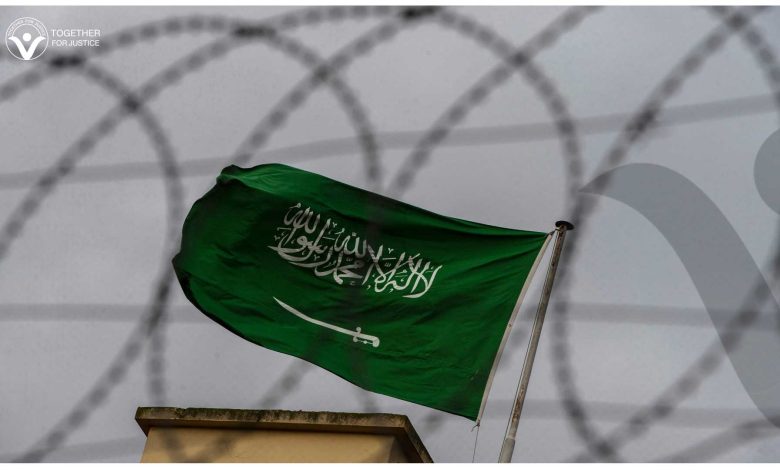13 Years for a Gifted Book — Ghassan Zreiq and a Trial Without Logic

For years, the name Sheikh Ghassan Baha Al-Din Zreiq was associated with a public religious and educational initiative, not politics, activism, or opposition. His project, “By My Hand I Drew Its Letters and Wrote Its Words,” is a handwritten Qur’an initiative aimed at encouraging memorisation and engagement with the Holy Book—an open, public, non-political endeavor shared across academic, religious, and cultural circles.
Today, that same name has vanished behind prison walls.
On 3 January 2023, Saudi authorities arrested Sheikh Ghassan without a warrant, and within days, the Specialized Criminal Court issued a 13-year prison sentence—in one of the fastest political rulings recorded—under the charge of “communicating with foreign entities.”
The alleged offense was not espionage, financing, coordination, or political alignment. It was gifting a copy of his project to former Turkish presidential advisor Yasin Aktay, the same project he presented to numerous Saudi and Arab public figures, institutions, and media personalities before.
No classified document was transferred.
No secret meeting was held.
No funds were exchanged.
No agreement was signed.
No political activity was conducted.
It was a public cultural and religious project, delivered as a public personal gift, now reclassified as a crime.
Sheikh Ghassan was denied legal representation, denied the right to defend himself, denied the right to appeal, and sentenced in a proceeding that lacked transparency, due process, and basic judicial guarantees. His current place of detention is undisclosed, and information about his status or wellbeing remains inaccessible.
Even under the broadest interpretations of security law, his act does not meet the threshold of a punishable offense, legally or logically. The case is not defined by evidence, but by association; not by action, but by proximity; not by crime, but by classification.
While Saudi authorities promote narratives of reform, openness, and modernisation, cases such as this reveal a parallel system—where cultural initiatives are interrogated, international contact is criminalised, and courtrooms function as instruments of containment rather than justice.
Sheikh Ghassan Zreiq is not imprisoned for what he did. He is imprisoned for where his work reached and who received it. His case is no longer personal—it is a precedent confirming that in the current climate, a book can be interpreted as a threat, a gift as a charge, and a courtroom as a formality.




